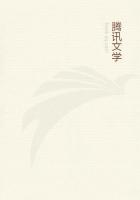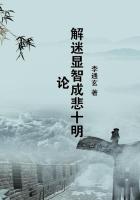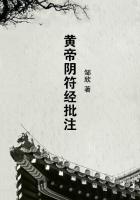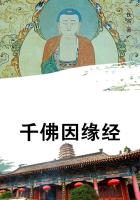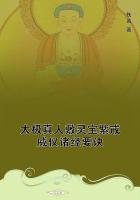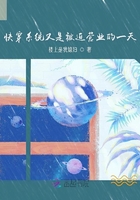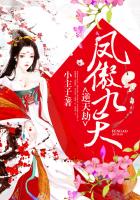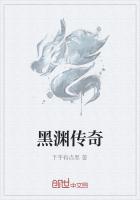[Tu Mu cites the unhappy case of T`ien Pu [HSIN T`ANG SHU, ch. 148], who was sent to Wei in 821 A.D. with orders to lead an army against Wang T`ing-ts`ou. But the whole time he was in command, his soldiers treated him with the utmost contempt, and openly flouted his authority by riding about the camp on donkeys, several thousands at a time. T`ien Pu was powerless to put a stop to this conduct, and when, after some months had passed, he made an attempt to engage the enemy, his troops turned tail and dispersed in every direction. After that, the unfortunate man committed suicide by cutting his throat.]
When the officers are too strong and the common soldiers too weak, the result is COLLAPSE.
[Ts`ao Kung says: "The officers are energetic and want to press on, the common soldiers are feeble and suddenly collapse."]
17. When the higher officers are angry and insubordinate, and on meeting the enemy give battle on their own account from a feeling of resentment, before the commander-in-chief can tell whether or no he is in a position to fight, the result is RUIN.
[Wang Hsi`s note is: "This means, the general is angry without cause, and at the same time does not appreciate the ability of his subordinate officers; thus he arouses fierce resentment and brings an avalanche of ruin upon his head."]
18. When the general is weak and without authority; when his orders are not clear and distinct;[Wei Liao Tzu (ch. 4) says: "If the commander gives his orders with decision, the soldiers will not wait to hear them twice; if his moves are made without vacillation, the soldiers will not be in two minds about doing their duty." General Baden-Powell says, italicizing the words: "The secret of getting successful work out of your trained men lies in one nutshell--in the clearness of the instructions they receive." [3] Cf. also Wu Tzu ch. 3: "the most fatal defect in a military leader is difference; the worst calamities that befall an army arise from hesitation."]
when there are no fixes duties assigned to officers and men,[Tu Mu says: "Neither officers nor men have any regular routine."]
and the ranks are formed in a slovenly haphazard manner, the result is utter DISORGANIZATION.
19. When a general, unable to estimate the enemy's strength, allows an inferior force to engage a larger one, or hurls a weak detachment against a powerful one, and neglects to place picked soldiers in the front rank, the result must be ROUT.
[Chang Yu paraphrases the latter part of the sentence and continues: "Whenever there is fighting to be done, the keenest spirits should be appointed to serve in the front ranks, both in order to strengthen the resolution of our own men and to demoralize the enemy." Cf. the primi ordines of Caesar ("De Bello Gallico," V. 28, 44, et al.).]
20. These are six ways of courting defeat, which must be carefully noted by the general who has attained a responsible post.
[See supra, ss. 13.]
21. The natural formation of the country is the soldier's best ally;[Ch`en Hao says: "The advantages of weather and season are not equal to those connected with ground."]
but a power of estimating the adversary, of controlling the forces of victory, and of shrewdly calculating difficulties, dangers and distances, constitutes the test of a great general.
22. He who knows these things, and in fighting puts his knowledge into practice, will win his battles. He who knows them not, nor practices them, will surely be defeated.
23. If fighting is sure to result in victory, then you must fight, even though the ruler forbid it; if fighting will not result in victory, then you must not fight even at the ruler's bidding.
[Cf. VIII. ss. 3 fin. Huang Shih-kung of the Ch`in dynasty, who is said to have been the patron of Chang Liang and to have written the SAN LUEH, has these words attributed to him: "The responsibility of setting an army in motion must devolve on the general alone; if advance and retreat are controlled from the Palace, brilliant results will hardly be achieved. Hence the god-like ruler and the enlightened monarch are content to play a humble part in furthering their country's cause [lit., kneel down to push the chariot wheel]." This means that "in matters lying outside the zenana, the decision of the military commander must be absolute." Chang Yu also quote the saying: "Decrees from the Son of Heaven do not penetrate the walls of a camp."]
24. The general who advances without coveting fame and retreats without fearing disgrace,[It was Wellington, I think, who said that the hardest thing of all for a soldier is to retreat.]
whose only thought is to protect his country and do good service for his sovereign, is the jewel of the kingdom.
[A noble presentiment, in few words, of the Chinese "happy warrior." Such a man, says Ho Shih, "even if he had to suffer punishment, would not regret his conduct."]
25. Regard your soldiers as your children, and they will follow you into the deepest valleys; look upon them as your own beloved sons, and they will stand by you even unto death.

